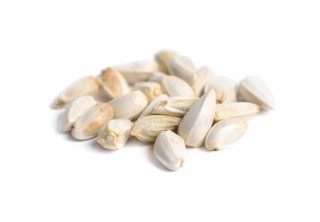

Safflower seeds, also known as Carthamus tinctorius, are commonly used as bird feed and for human consumption due to their oil and food dye properties. These seeds have their origins in ancient Egypt, but they are now widely cultivated in Europe, North America, and Asia. While there are not many benefits of safflower seeds for dogs, they do contain linolenic and linoleic acids that can promote heart health and lower cholesterol in humans. On the other hand, excessive consumption of raw safflower seeds by dogs can cause gastrointestinal obstruction. Therefore, it is essential to limit their consumption and consult with a veterinarian before incorporating them into your dog’s diet. While safflower seeds are edible for dogs, it’s important to limit their consumption as excessive amounts can lead to intestinal blockage.
Safflower seeds are commonly used as bird feed and for human consumption due to their oil and food dye properties. They contain linolenic and linoleic acids that can promote heart health and lower cholesterol in humans.
Raw safflower seeds may not be appealing to dogs and can cause gastrointestinal obstruction if consumed excessively. While safflower seeds are not toxic to dogs, there is no conclusive evidence on their suitability for canine consumption.
It’s recommended to give safflower seeds to dogs in small quantities to avoid any digestive issues. Consult with a veterinarian before incorporating safflower seeds into your dog’s diet.
Safflower seeds are affordable and easy to access as they are available in most supermarkets. A serving idea for dogs is to mix a few seeds with their regular meal. If you're looking for alternative food that is safe for dogs, you can try sweet potatoes or carrots. Have you tried feeding safflower seeds to your dog? How was their experience? Always remember to prioritize your dog's health and safety before introducing any new food to their diet.